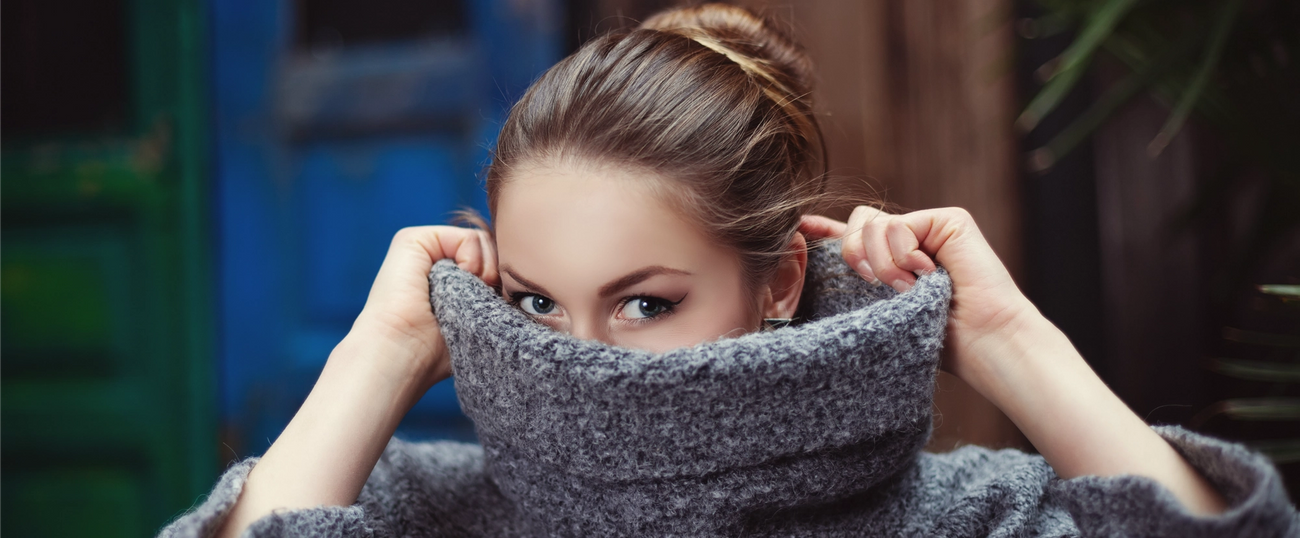Dressing Modestly Without Feeling Guilty
If I am, by nature, a modest dresser, what’s my issue with dressing for my job at yeshiva? Why does it feel so restrictive?




My adherence to the dress code at the yeshiva where I teach began with a blatant but unintentional infraction. HR neglected to warn me about the rules for appropriate attire, so on the day of my model lesson I blazed into the building wearing pants.
A year and a half later, I haven’t made peace with wearing a knee length skirt every day or shirts that cover my elbows. At night I google search “modest fashion” in a continued attempt to avoid looking shapeless and frumpy while following the rules. I have what is likely an unhealthy obsession with tracking other teachers’ clothing. When I see an exposed elbow I feel a secret thrill. Am I subversive enough to wear short sleeves too?
As one of few non Jewish teachers at yeshiva, I’ve struggled to make peace with my workplace dress being under someone else’s control. The idea of modesty or tzniut, fascinates me.
How does one reconcile ideas of gender equality with integrity for their belief systems and the belief systems of others? Is it possible to adhere to a dress code that you don’t believe in without feeling resentful?
I was raised by hippie parents who left us barefoot and diapered. My mother was big on dressing us kids up for occasions like flying or the theatre. She did not allow jeans to dinner. But we weren’t raised to cover our bodies. Our bodies were treated with respect but in my upbringing this did not extend to covering ourselves. Everything to do with the body was normal, natural and nothing to do with shame or immorality. Regardless of this freedom in expression, (or maybe in direct correlation), I’ve never exposed a lot of skin. During graduate school I honed my librarian meets laid back English professor vibe, and often wore cardigans and pencil skirts.
If I am, by nature, a modest dresser, what’s my issue with dressing for my job at yeshiva? Why does it feel so restrictive?
In an attempt to understand modesty, I’ve taken to casually interviewing Jewish women in and out of school about their dress. Answers range from “it’s the way I’ve always dressed,” to “I wouldn’t be comfortable going out any other way,” to “it’s what my mother taught me.” Rarely is God or Torah brought into the discussion. More, in my experience, it feels like a matter of personal comfort and similar to many of us, a result of cultural and religious influences. Any women can relate to wanting a sense of safety when entering a public space. Clothing is one way to control how the outside world views you.
One day this summer I spoke with a young Jewish mother at the Brooklyn Bridge Water Lab. She was 23 with three children under four and a fourth on the way. She was dressed in a long sleeve shirt, tights and a long skirt, her hair covered. It was 95 degrees with 98% humidity. I wore a tank top and shorts, delighting in the coolness of the water on my feet.
“But don’t you mind?” I asked incredulously.
“The heat?”
She looked at me placidly, her stockinged feet in the water.
“I’m like a diamond,” she replied. “You can’t just expose diamonds for the whole world to see.”
She shook her head, shuddering at the thought of going out with uncovered arms and legs.
“It just wouldn’t feel right,” she said.
“When my daughters are old enough, I’ll teach them, too.”
But she looked at me compassionately when I explained my discomfort with the dress code.
“Of course,” she said sympathetically. “You’re not used to it.”
One day in July, I biked to school to pick-up a paycheck. Again, it was over 90 degrees, so I wore shorts and a tank top. I was feeling rebellious.
The security guard took one eyebrow raised look at me.
“If you see Rabbi, hide in the bathroom.”
I felt a hot jolt of anger mixed with the desire to laugh. Who was this man to tell me how to dress? On the other hand, out of respect, I wouldn’t want to offend someone with my exposed skin.
Recently, riding the train alone, a man who looked mentally unwell stared at me as if I was undressed. I’d left school and in customary fashion when it’s hot, taken off my cardigan. Suddenly, with the man’s unwanted attention, I wanted to be covered. I wanted the safety of fabric between me and his stare. If only I’d be wearing a long baggy black dress, would he have overlooked me? Would I have been spared running to the next train car to avoid him?
But when I was riding my bike to school, wind in my uncovered hair, bare legs pedalling fast, I felt free. Of course freedom looks very different depending on your vantage point.
For now I do my best to set an example for my students. I follow the rules and continue to explore and question, working within the paradox of following rules I respect but don’t believe in.
I’ll never truly belong at yeshiva but like all good travelers in a foreign land I can learn to blend in.
Kelsey Liebenson-Morse is a writer and teacher living in New York.